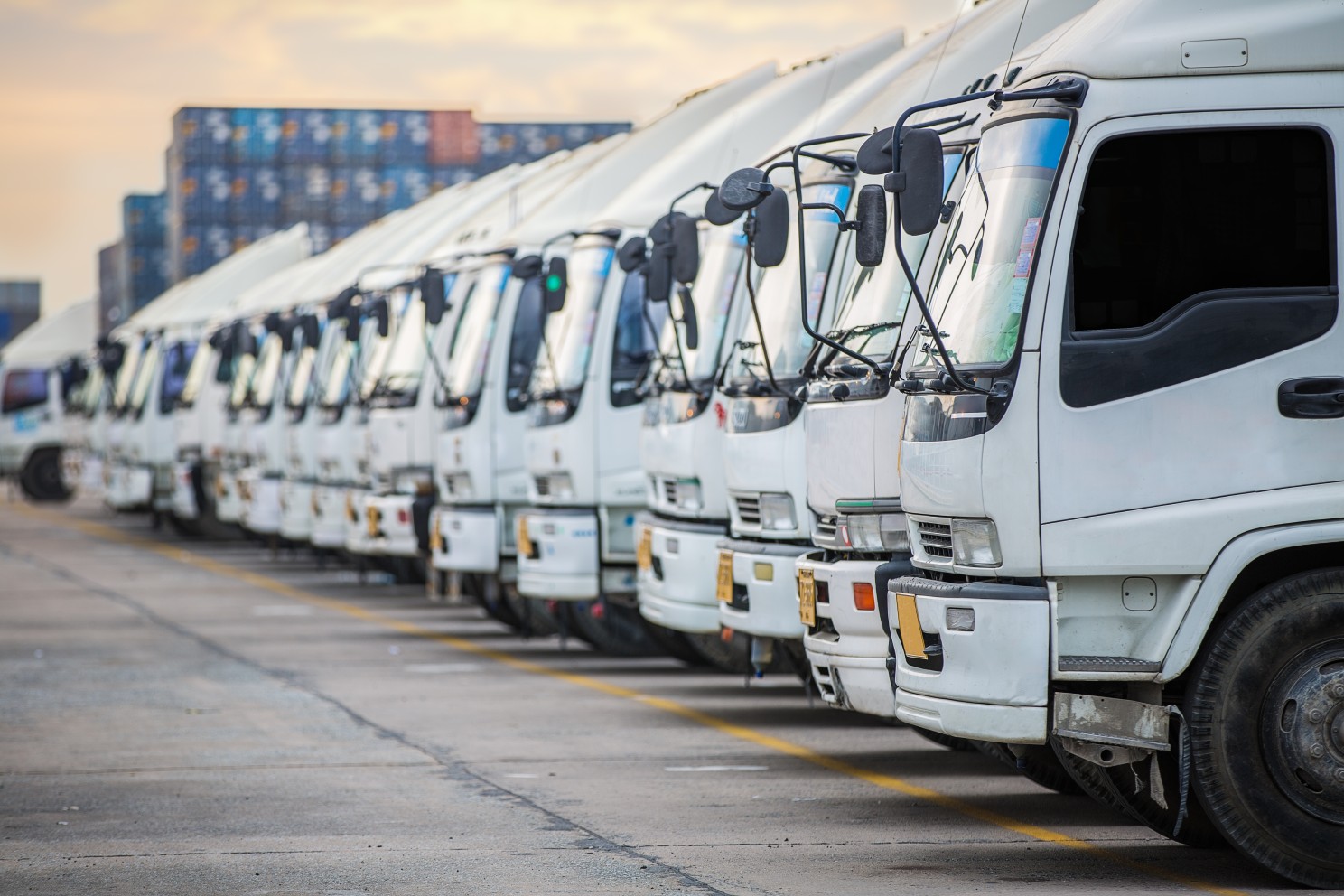
Susie Jones
Lastbilchauffører udfordrer begrebet "chaufførmangel"
Oprettet: 15.08.2024
•
Opdateret: 18.12.2024
Den 11. april 2024 åbnede [DfT] (https://www.fleetpoint.org/fleet-management-2/driver-shortage/consultation-opened-of-how-to-address-the-driver-shortage-for-hgv-and-coach/) en høring om foranstaltninger til at afhjælpe manglen på chauffører. De søger forslag til at give en person mulighed for at gennemføre sine teori- og terrængående manøvreprøver, før de får tildelt en midlertidig HGV-chaufførrettighed.
Siden Covid-19 og Brexit har branchen oplevet et fald i antallet af lastbilchauffører. Pandemien forsinkede [30.000] (https://oceansidelogistics.com/shortage-of-lorry-drivers/) tests for nye chauffører, og Brexit ramte flådevirksomhederne hårdt - med mange europæiske lastbilchauffører, der forlod Storbritannien.
En 2023-rapport fra SNAP antyder, at sektoren kan nå et "[tipping point] (https://snapacc.com/tipping-point/)" i løbet af de næste 10-15 år. Da branchen ændrer sig hurtigt, er onlinebestillinger et af de hurtigst voksende krav - kombineret med en aldrende arbejdsstyrke vil branchens behov vokse sig større end manglen på kvalificerede chauffører.
Hvad mener lastbilchaufførerne?
På [sociale medier] (https://www.facebook.com/snapaccount?locale=en_GB) bad SNAP chaufførerne om at give deres mening til kende om forslaget fra DfT. Mange chauffører kommenterede ikke ordningen, men 72,5 % anfægtede udtrykket "chaufførmangel" og betegnede det som skræmmekampagne.
I stedet sagde de, at følgende fik erfarne chauffører til at forlade branchen og samtidig afskrækkede nye ansøgere:
Lønninger
Af de 72,5 % mente 28 %, at lav løn var en afskrækkende faktor. Chauffører på SNAPs sociale medier foreslog, at de kunne tjene mere i andre erhverv:
"Jeg har et HGV-kørekort, men har ikke lyst til at bruge det. I øjeblikket tjener jeg mere i timen som kørelærer. Der er slet ikke mangel på chauffører."
*"Betal chaufførerne flere penge og giv dem bedre faciliteter."
Der har været misforståelser omkring lønninger for lastbilchauffører i Storbritannien - med den opfattelse, at lastbilchauffører tjener mere end den gennemsnitlige arbejdstager. Ifølge [National Careers] (https://nationalcareers.service.gov.uk/job-profiles/large-goods-vehicle-driver) ligger gennemsnitslønnen for en lastbilchauffør i Storbritannien på mellem 22.000 og 40.000 pund - med erfarne chauffører i den øverste ende.

Faciliteter
Faciliteterne blev også undersøgt af mange - 20 % gav dårlige standarder skylden for at skubbe kvalificerede chauffører væk. Standarden af faciliteterne på rastepladser i hele Storbritannien er blevet meget kritiseret af folk i branchen, og mange siger, at de ikke er pengene værd.
DfT har gjort en betydelig indsats med deres tilskud på 6 millioner pund [HGV Parking and Driver Welfare grant scheme] (https://www.smmt.co.uk/2024/05/first-class-facilities-truckstops-to-be-upgraded-with-16-5m-funding/#:~:text=Under%20the%20plans%2C%2038%20truckstops,significantly%20upgrade%20facilities%20for%20drivers.) - støttet af yderligere 10,5 mio. pund fra branchen. Ordningen vil investere i 38 truckstops i hele England for at opgradere faciliteterne for chaufførerne, herunder nye brusere og restauranter samt bedre sikkerhed.
Ud over opgraderede faciliteter vil projektet forhåbentlig skabe omkring 430 nye parkeringspladser til lastbiler, hvilket vil resultere i færre parkeringspladser, og at pladserne bliver fyldt op tidligt på aftenen.
Mangel på arbejde
Ligeledes forklarede 20 % af chaufførerne, at de havde et kørekort, men ikke kunne finde arbejde. Ifølge Office for National Statistics (ONS) er der mere end 183.000 job som lastbilchauffør i Storbritannien. På trods af dette har hver region forskellige jobmuligheder, hvilket resulterer i en ulige efterspørgsel i hele Storbritannien. Flere chauffører delte deres erfaringer med at kæmpe for at få arbejde:
*"Jeg har haft en klasse 1 i syv måneder og kan ikke få et job. Jeg vil gerne vide, hvor manglen er."
"Hvilken mangel? Der er ikke meget arbejde at få."
Chaufførens certifikat for erhvervskompetence
10 %, som hverken var enige eller uenige i udtrykket "chaufførmangel", sagde, at [førerbeviset (CPC)] (https://www.gov.uk/driver-cpc-training/getting-your-driver-cpc-card) havde spillet en afgørende rolle i det reducerede antal lastbilchauffører.
CPC blev indført i 2009 og har til formål at forbedre trafiksikkerheden, professionalismen og miljøbevidstheden - det sikrer også, at chaufførerne er opdateret med alle sundheds-, sikkerheds- og lovkrav. Resultater fra en høring om en revision af CPC viste, at [47 %] (https://www.hgvtraining.co.uk/hgv-training/what-is-cpc/#:~:text=It%20was%20brought%20in%20to,1000%20for%20driving%20without%20it) af lastbilchaufførerne sagde, at det var ineffektivt eller meget ineffektivt. På SNAP's sociale medier kommenterede en chauffør:
*"Afskaf CPC, så tager jeg flere vagter. Jeg vil ikke betale for at arbejde 35 timer og lære at gøre det, jeg tidligere har brugt år på at gøre hver dag."
Regeringen har skitseret en række ændringer af CPC for at øge fleksibiliteten, når kvalifikationen skal fornyes og genoptages. Blandt ændringerne i kursuslængden vil regeringen udvikle mere centralt kursusindhold sammen med Driver and Vehicle Standards Agency.
Eksterne faktorer som Brexit og COVID-19 kombineret med brancherelaterede spørgsmål har haft en betydelig indvirkning på beskæftigelsesgraden i transportsektoren. I et miljø i konstant udvikling skal branchen fortsætte med at foretage ændringer, hvor det er nødvendigt, for at tiltrække og fastholde flere chauffører.
Om SNAP
SNAP er den digitale markedsplads, der forbinder flådens rejser fra depot til destination i hele Europa ved hjælp af teknologi, sikkerhed og et omfattende europæisk netværk.
Tjenesten bruges hvert 13. sekund af en af de mere end 190.000 lastbilchauffører, der bruger SNAP's betalingssystem. Transaktioner sker på tværs af et netværk af over 600 lastbilservicepartnere i hele Europa. [Tilmeld dig gratis] (https://snapacc.com/sign-up/)


